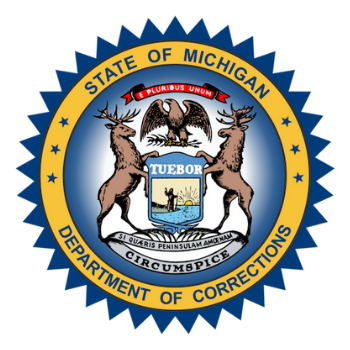Michigan Department of Corrections Facilitates Prison Education Through a Learning Management Solution Modernization
Providing men and women in prison with education and job training makes them much less likely to recidivate. A groundbreaking pilot program expands education opportunity securely in Michigan prisons.

About Michigan Department of Corrections
The Michigan Department of Corrections provides educational services to approximately 7,500 offenders at 29 prison facilities around the state and one facility at its Department of Technology, Management, and Budget Agency Services headquarters. The mission of its prisoner education system is to facilitate the transition from prison to the community by assisting incarcerated individuals in the development of their academic, workplace, and social competencies through effective and cost-efficient programs. It offers programs including academic (GED and HiSet); career and technical education, including state and national credentials; employment readiness; special education; Title I programming; and postsecondary classes.
The MDOC is proud of the progress we have made in providing those incarcerated with innovative programming to further their success. This partnership with Resultant and Google is a transformative investment that puts Michigan at the forefront of correctional education technology.
Heidi Washington
Director, Michigan Department of Corrections
Setting The Stage
In 1970, the total U.S. prison population came in at just under 200,000; in 2020, it topped 1.2 million, according to Bureau of Justice Statistics. That increase dramatically outpaces population growth, draining state and federal budgets, crushing communities, creating a tax burden for citizens, and leaving gaps in families that impact generations.
The answer has never been as simple as “follow the law.” Data analysis shows that a host of environmental and social factors contribute to criminal activity, and shifting laws that respond to political trends, like the War on Drugs, create their own wellspring of incarceration.
One thing has become clear, however: Education helps keep people out of prison.
An Emory University study revealed that vocational training slashed the recidivism rate—generally 75–80 percent—to 30 percent. The rate drops further the more education an offender receives: For those earning an associate degree, recidivism plummets to 13.7 percent; a bachelor’s degree drops it to 5.6 percent; and for the time period studied, no one who earned a master’s degree while incarcerated recidivated.
Educating men and women in prison brings tremendous benefit to individuals, families, communities, and the country as a whole. Making it happen is a challenge.
Google Workspace, Google Classroom, and the security and affordability of Chromebooks facilitate teaching and learning for 170 million students worldwide and are essential to a monumental shift in prison education programs.

The Problem
Michigan Department of Corrections (MDOC) recognized the urgency of modernizing its educational system and took a courageous leap forward. Improving educational technology for students, instructors, and administrators was a goal that necessarily built on shifts within the agency—and enlisting a partner who was equipped to innovate.
To achieve the desired educational goals, MDOC needed to address these challenges:
- A legacy system and end-of-life software kept MDOC technology staff on high alert—and busy working with a multitude of vendors for solutions.
- Educators clamored for programs that supported their mission and ensured inmates went home with the credentials that would get them jobs.
- Administration staff wanted to move past manually handling documentation related to assessments and program completion—paperwork offenders need when they seek jobs and staff often had to resend after loss or damage.
Providing incarcerated individuals with not just the skills they need but the documentation to prove they’d earned them had been a challenge that overtaxed instructors and kept administrative staff busy handling paper documents. These documents continually needed to be mailed out to meet the need of those who’d been released and hoped to put their newfound skills to use in the job market.
Meanwhile, MDOC’s IT department had necessarily focused on maintaining legacy systems and the multiple vendors those systems required. Putting out technology fires constantly ate up time that could otherwise have been used for documentation, implementation, and innovation. They were eager to collaborate toward more efficient solutions that would enable systemwide improvement and support the education initiative.
We're proud to help organizations thrive, and we'd love to tell you more.
Our Approach
Through a bold pilot program, MDOC collaborated with Resultant and Google to work through legacy challenges and craft unique solutions to meet the state’s goals for its prison system. The process started with intensive information-gathering from a range of stakeholders; the project team, which included specialists from Resultant and Google, met weekly with MDOC representatives to learn about processes, frustrations, goals, and strengths.
For any solution, thorough information-gathering is an essential first step to working with clients toward the outcomes they want. We lead with empathy and a Design Thinking approach to build solutions that truly work for the people who need them. We stress collaboration throughout every engagement, and here that meant a lot of early discussion of what might be possible—big ideas that gave us a sense of where everyone really hoped to go, our experts the inspiration to problem solve fearlessly, and MDOC an expanded idea of what could be possible. Generating ideas from diverse perspectives enabled everyone to think bigger—and punch some necessary holes in concepts as we worked toward solutions.
Coming into an engagement with questions rather than a playbook creates the kind of partnership that brings extraordinary outcomes. Combining organizational expertise with the fresh eyes of technical experts helps move past ideas that have become entrenched and the limits that inevitably come from devotion to one particular mission. Melding institutional expertise with technical specialties broadens the entire team’s perspective, bringing greater potential for problem solving.
The first secure, scalable, cloud-based education solution for prisons.
Our partnership with Google and Michigan Department of Corrections has produced an innovative approach to prison education:
- Experienced technology, education, and Google-certified specialists work toward a customized solution.
- Platform is highly secure, using best-in- practice security protocols.
- Chromebooks deliver cost-effective, secure access.
- Adaptable content library and instruction expands access and is ADA compliant and ESOL-ready.
- Digitized progress and participation journey brings visibility to administrations and provides post-release digital record access to formerly incarcerated individuals.
- Our team builds and delivers a tailored training program for staff and instructors, empowering them to create, deliver, grade, and retain their own customized course material.
The Outcome
Starting from a meaningful mission and a strong foundation of problem solving, MDOC, Resultant, and Google created a scalable statewide learning management system that offers premium security in challenging circumstances.
MDOC has begun transforming prison education delivery statewide through program objectives that include:
- Transitioning from a legacy system to web-based infrastructure
- Implementing a scalable statewide learning management system
- Providing secure testing environments that are mobile- and lab-friendly
- Increasing instruction capacity through live-stream classes
- Ensuring secure access to online resources
A cloud-based system keeps MDOC functioning smoothly, with 99.9% uptime, extensive education and assessment opportunities, a customized reporting system, and a repository for all the documentation students need upon release—available through a converted Gmail account they can access post-release.
Where security is paramount, the team met significant challenges throughout the project, from providing ethernet ports for facilities without Wi-Fi to how to provide students a virtual classroom without also giving offenders a forum for backchannel communication. Our team managed security profiling, including training administrators, and customized the entire delivery experience to restrict access.
The program is scalable to accommodate further MDOC objectives, like providing the electronic law library to every incarcerated person under an individual user account, expanding training options, and engaging significantly more men and women in prison.
This project has made the inmate journey 100% digital, through a single platform that ties everything together. And MDOC doesn’t have dozens of systems to manage. Most important, incarcerated individuals, who already have a strike against them, get the comfort and familiarity with these tools that make them marketable.
- Charlie Henderson, Michigan account executive for Google Cloud

The Impact
MDOC has moved from legacy systems that overtaxed IT staff to a smooth-functioning cloud platform that cuts down on vendors and provides reliable uptime (Google guarantees 99.9% uptime), security, and a single pane of glass for overseeing the student journey. Incarcerated men and women now have expanded access to virtual instruction, certification programs, the electronic law library, and the documentation they need to market themselves on the job market.
After a successful pilot program that included 12 instructors and approximately 100 students, MDOC has opted to continue its partnership with Resultant. Over the next several years, our team will provide IT managed services for Michigan’s learning management system, as well as implementing the following upgrades:
- A landing page on each device to provide participants with a seamless learning experience and access to educational features
- Domain provisioning, setup, and configuration
- Administrative control panel security review and recommendations
- Google Workspace and Google Classroom training
- Google Enterprise licensing for 15,000 students, 200 teachers, and 40 admins


